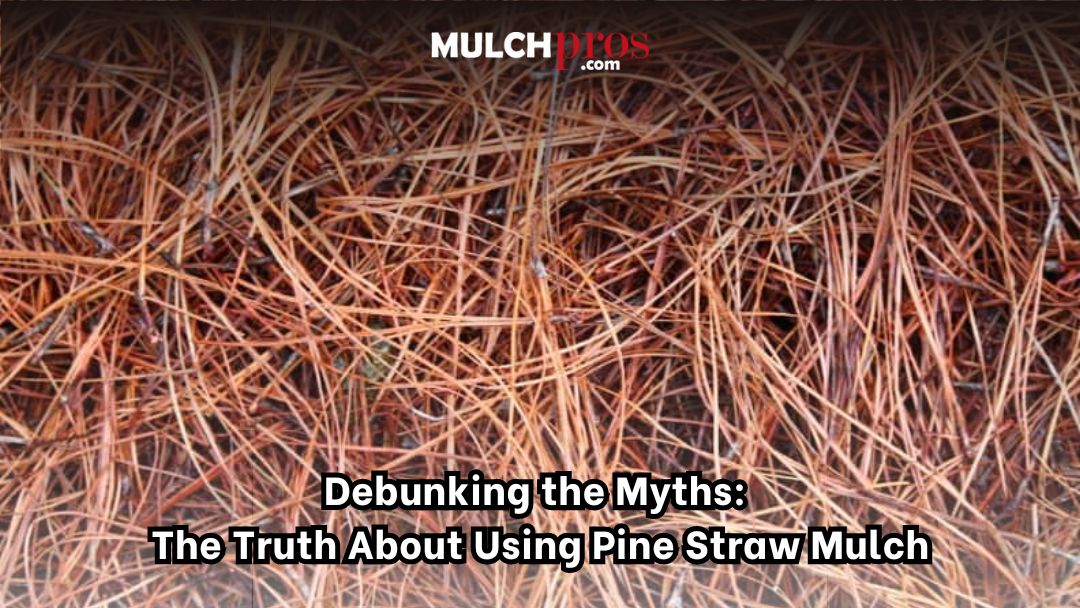The digitized world we live in today has provided a lot of information that affects the decisions we make. When it comes to landscaping, social media and the internet open a lot of room for contradiction. With all these information sources, it can be challenging to find the right answer to gardening inquiries, especially mulching. Let’s debunk common pine straw mulch myths to help you make informed decisions that promote plant growth and development.
Pine Straw Mulch Makes the Soil Acidic
A common pine straw mulch myth is that it increases soil acidity. Low pH can inhibit plant growth for years, compromising the quality of your property. The reality is that pine needle mulch doesn’t make the soil acidic despite having a pH of 3.3 to 3.8. If you have a pine tree on your premises, you can turn the fallen needles into the soil before decomposing. While this can lower the soil pH slightly, the change can’t damage plants. In addition, pine straw mulch helps to retain moisture, suppress weeds, and replenish nutrients.
Pine Straw Mulch Temporarily Starves Plants of Nitrogen
Another myth about pine straw mulch is that it depletes the nitrogen in the soil, compromising plant development. As a high-carbon material, adding pine straw mulch to the soil hinders microorganisms from accessing nitrogen. Once the organisms in the soil die, the plants can access sufficient nitrogen required for growth. This means that pine straw mulch is beneficial to plants by allowing microorganisms to avail themselves of nitrogen. However, soil infertility is an entirely different matter, hence the need to conduct a soil test.
Read more: The Perfect Match: Pine Straw and Mulch
There’s No Difference Between Pine Straw Mulch and Synthetic Fertilizers
The reality is that organic mulch is better than synthetic fertilizers in most landscaping situations. When you apply mulch in your yard, it is converted to soluble form by microorganisms, releasing nutrients necessary for growth. On the other hand, synthetic fertilizers are soluble in water and become readily available whether the plants need them or not. With that in mind, the fertilizer can build up, burning the roots or becoming easily washed away before improving growth.
Now that you know some of the common pine straw myths, you can research them before making a decision. It is vital to consult a professional landscaping service to ensure you choose mulching material suited to your needs. Contact us at Mulch Pros and order high-quality pine straw in Milton to transform your yard into a lush and breathtaking space.
We proudly offer top-quality Long Needle Pine Straw and Slash (Short Needle) Pine Straw , ensuring your landscaping needs are met with the finest materials. We proudly offer our services in Cumming, Johns Creek, Sandy Springs and Rosewell. Trust us to provide the ideal materials and exceptional service to enhance outdoor projects in these areas.


